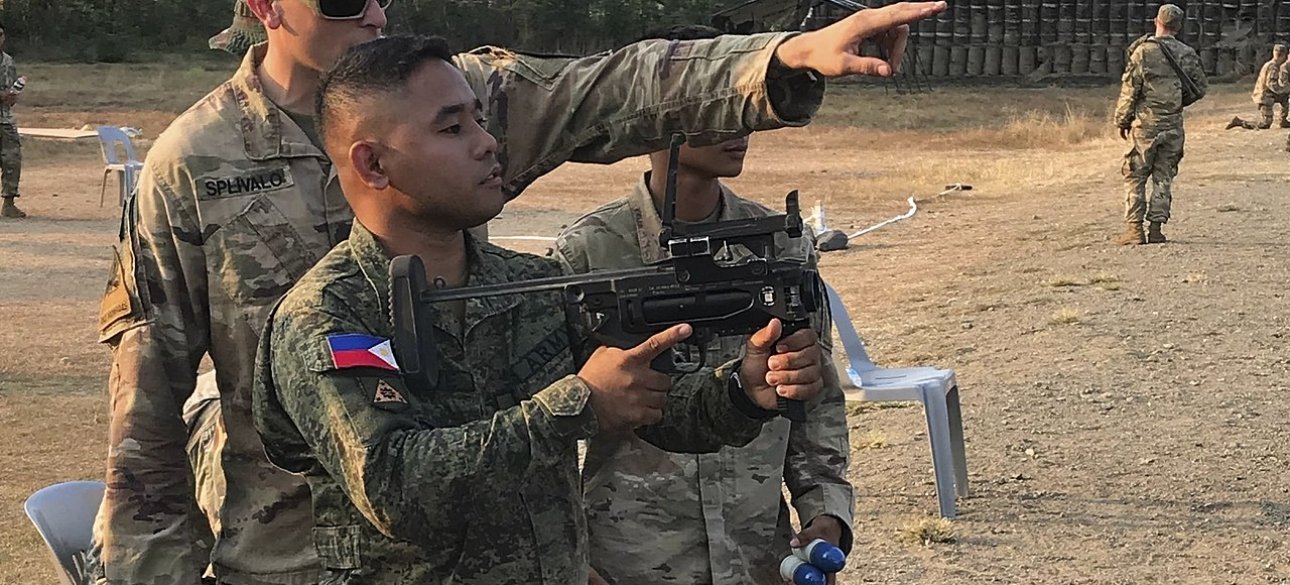
But there are also bad news for all Europeans who are "tired" from the conflict. The real work of Europe will only begin when the current war for exhaustion will eventually end with more or less static lines, with or without formal truce. The future task will not only include physical reconstruction, budget support or closer to Ukraine to EU membership. It is much more important that this will include the stability of any formal or informal settlement that arose as a result of the war.
The prospect of significant presence of the United States in post -war Ukraine remains as remote as its membership in NATO. Unfortunately, the reality is that US assistance is becoming more and more stringent in the US, especially under the guidance of a new speaker of the House of Representatives, a Republican Maga Mike Johnson.
Even if most of the US military "assistance" Ukraine is spent on replenishing the Pentagon arsenal with new American -made weapons, the world is lucky if it sees at least one modest additional bill that is really intended for Ukraine. As soon as the fighting ceases or even less intense, political arguments in favor of supporting Ukraine's defense or its budget at the expense of US resources will become impossible.
The United States will also not provide great help in Ukraine's accession to the EU. More importantly, this is likely not to help the country complete the internal reforms needed to enter that Ukraine will make Ukraine similar to Estonia or Poland. Finally, it may be even more frightened by Kiev, it is unlikely that the United States will come to guarantee the safety and territorial integrity of Ukraine - unless it takes the form of another vain "Budapest Memorandum".
At the NATO Summit in Vilnius this year, Baiden's administration did not show much interest in Ukraine's accession to the Alliance, which would provide a sufficient restraint for future attacks of Russia. If Donald Trump is re -echoed, NATO's expansion is even less likely - the future of the Alliance itself may be at stake. Perhaps fully armed Ukraine will be able to restrain future Russian invasions, and maybe not.
If Russia restores and modernizes its armed forces and implements the militarization of all its living power (which the Kremlin still avoided), it may well be tempted to give the Putin conqueror war a second chance. What are the options left? After the Korean War of 1953, the United States retained considerable forces in the south to restrain North Korea aggression. Seven decades later, nearly 30,000 US soldiers are still stationed in the country.
Throughout the Cold War, hundreds of thousands of US servicemen and their allies were placed in Western Germany (in the late 1950s, the number of US troops had 400,000 people) to hold back the Soviet threat. If Ukraine does not join NATO immediately after the end of the present war, it is quite reasonable to make a similar demand for its Western partners as a preliminary condition of any cessation of fire.
An alternative in which Europeans and Americans remain evasance actually signals to Ukraine that in the future conflict it will remain alone. Of course, the prospect of significant presence of the United States in post -war Ukraine remains as remote as its NATO membership. However, Ukraine's European neighbors are deeply concerned about whether the current war will be the last or not.
What they are ready to do to make this European war end all wars, is a useful test of all European reflections on the strategic autonomy of the continent. In order for the war to end, Ukraine will need tangible international guarantees. To do this, you will have to have large multinational forces on their territory, which will probably include, among other things, Poland, the United Kingdom, Germany and France.
Given the current political trajectory of America, it will be unrealistic to expect it that it will play a central role after the present war. The need for restraint remains relevant regardless of how and when the current fighting is completed. Even if Ukrainians manage to fully return their territory by force, it is possible that Russia will be able to invade at any time at their choice-it has already done it once.
Those in Europe who really care about the future of Ukraine should be prepared to provide financial support and troops with constant multinational forces that will be located in Ukraine along the future "collision line" as soon as the current fighting will end. In order for it to be effective, this force must have at least a few tens of thousands of servicemen.
Those in Europe who are "tired" from war should understand that the hardships related to maintaining any future peace will be no less exhausting. However, if the Kremlin does not effectively refrain from invasion of Ukraine, ordinary European subtleties - negotiations on EU accession, internal institutional reforms or investment in infrastructure - will be little useful to Ukrainians. The author expresses a personal opinion that may not coincide with the editorial position.










All rights reserved IN-Ukraine.info - 2022